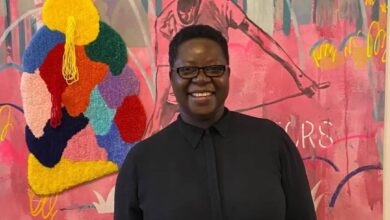Rumbi Chen: From Mufakose to Australia – How Life Challenges Shaped Her Voice in Writing and Health Advocacy

Australia-based author Rumbi Chen, whose real name is Rumbidzai Chenai Dunduru, has opened up about how social displacement and economic hardships in her teenage years became the driving force behind her passion for writing and health activism. Born and raised in Harare’s Mufakose suburb, Chen’s journey is one of resilience, cultural identity, and turning personal struggles into powerful narratives.
With three books already to her name, Chen’s growing catalogue includes the poetry anthology Dudu Muduri, Ramblings of an Old Teenager, and Gango Musanganiswa weNhetembo. She is currently working on a new novel titled The Land Baron, her second collaboration with Elliot Chatsama, scheduled for release in July 2025. This follows their earlier project, The Storm, which tackled themes like drug abuse, corruption, and diplomacy.
Speaking about her creative process with Chatsama, Chen described their first collaboration as a whirlwind experience, with time differences and daily responsibilities making the process both challenging and rewarding. “We had to balance our ideas, dive deep into the characters, and ensure authenticity in every theme we explored,” she said.
Another significant milestone in her career was working with Sherlyn Chigiji on A Journey in Confusion, a deeply emotional collection of short stories written by women who have experienced domestic abuse. Chen regards this project as one of the most emotionally taxing but rewarding endeavors she has undertaken. “The book gives voice to women affected by domestic abuse and child marriages across the world. Sherlyn was inspired by women who confided in her, and her vision was to encourage open dialogue because no one is an island,” Chen explained.
Chen draws heavily from her own life experiences, especially her upbringing in Zimbabwe and the culture shock she experienced after relocating to Australia. Her transition to a multicultural society made her acutely aware of the cultural barriers in health promotion and the lack of culturally sensitive storytelling in public health spaces.
Her training in creative writing for social change has further shaped her voice. Chen uses fiction to humanize complex social issues such as drug abuse, gender-based violence, and mental health challenges. She blends personal memories, community observations, and academic insights to craft stories that resonate across cultures.
“In Zimbabwe, I saw firsthand the devastating effects of drug abuse and mental health problems. Unfortunately, access to support services is limited back home compared to Australia, where mental health services and public health resources are widely accessible and often free,” Chen noted.
Her latest works continue to reflect these realities, drawing stark contrasts between her life in Zimbabwe and Australia while promoting the need for systemic change and increased support services back home.
Cultural identity remains at the heart of Chen’s writing. Despite now living abroad, she stays rooted in her Zimbabwean heritage. “No matter what the world says about Zimbabwe, whether good or bad, I’m proudly Zimbabwean,” she said.
Her books often celebrate Zimbabwean culture, language, and storytelling traditions while engaging with global issues that affect communities worldwide. Chen believes that cultural storytelling is a powerful form of healing, especially for post-colonial societies striving to reclaim their narratives and identities.
“Through my writing, I aim to connect with my roots, honour the heroic feats of my people, and imagine a future shaped by hope and resilience,” she said.
As she finalises The Land Baron and continues her health advocacy work, Chen’s journey stands as a testament to how personal adversity can fuel a powerful voice for social change and cultural preservation.




